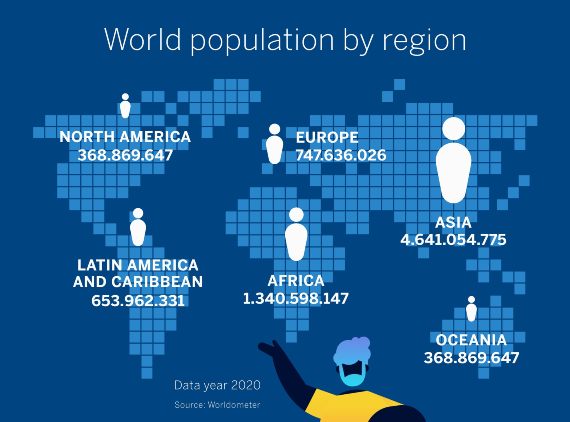On 15 November 2022, the United Nations announced that, according to the models used, the world’s population had reached 8 billion. Some websites based on these projections allow you to follow the growth in real time and discover, for example, that there are 215,000 more people alive today than there were yesterday. The population curve has risen sharply since 1900, although the rate of increase has slowed; it took 12 years to go from 7 to 8 billion, and it will take 15 years to reach 9 billion. But the 10 billion mark awaits us this century. Can the planet cope?
In 1968, Paul R. Ehrlich and his wife Anne Howland Ehrlich, both biologists, published a book that gradually became one of the most influential writings of the 20th century. The Population Bomb made its thesis clear from the very first sentence: “The battle to feed all of humanity is over. In the 1970s and 1980s hundreds of millions of people will starve to death in spite of any crash programs embarked upon now.” The Ehrlichs thus resurrected Thomas Malthus’s idea of the imbalance between population and food growth, which inspired Darwin’s theory of natural selection.
But the “P-bomb” has not exploded. While there has been no shortage of famines in the world, critics argue that they have been caused not by a lack of food, but by wars and political corruption. In 2020, Ehrlich told OpenMind that reality had changed his scenarios—not his predictions—due to moderating population growth, technological progress and the Green Revolution in agriculture, as well as the efforts his dystopian warning prompted.

But the absence of a population catastrophe has been wielded by advocates of unlimited growth, especially those linked to conservative political and media sectors, to argue that not enough children are being born to replace an ageing population. Ehrlich’s ideas have been criticised for inspiring repressive policies of forced sterilisation and opposing reproductive freedom, and some argue that population alarmism stifles development and innovation to solve global problems.

Other experts, however, warn that the population bomb is still ticking because our growth is unsustainable, outstripping and destroying the resources on which we depend. For his part, Ehrlich continues to argue that collapse is imminent, especially given the threats of climate change and accelerated environmental degradation that have emerged since the book’s publication, causing the sixth mass extinction on Earth, this one human-induced. Will the P-bomb finally explode? That question remains open.

Javier Yanes
Comments on this publication